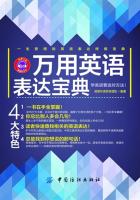The people you meet who affect your life, and the success and downfalls you experience, help to create who you are and who you become. Even the bad experiences can be learned from. In fact, they are probably the most poignant and important ones. If someone hurts you, betrays you, or breaks your heart, forgive them, for they have helped you learn about trust and the importance of being cautious when you open your heart. If someone loves you, love them back unconditionally, not only because they love you, but because in a way, they are teaching you to love and how to open your heart and eyes to things. Make every day count. Appreciate every moment and take from those moments everything that you possibly can, for you may never be able to experience it again. Talk to people that you have never talked to before, and actually listen. Let yourself fall in love, break free, and set your sights high. Hold your head up because you have every right to. Tell yourself you are a great individual and believe in yourself, for if you don' t believe in yourself, it will be hard for others to believe in you.
You can make of your life anything your wish. Create your own life and then go out and live it with absolutely4 no regrets. Most importantly, if you love someone tell him or her, for you never know what tomorrow may have in store.
人们不时走进你的生活,有时你会觉察出,他们是出于某种特定目的:给你一个教训,帮你认清自己或你理想中的自己。你永远不知道这些人是谁(可能是你的室友,邻居,同事,久违的朋友,爱人,甚至完全是一个陌生人)。一旦你开始关注他们,很快便会发现,他们影响了你的生活,而且往往很深刻。
有时,发生在你身上的事情看似可怕、痛苦,或不公平,但细思之后,你会发现,如果没有克服这些障碍,就永远不可能认识到自己的潜力,能力,毅力,或者真实的内心世界。世事皆非出于偶然。疾病,伤痛,爱情,辉煌的成就和彻底的失败,这一切都是检验你灵魂的限度。不论它们以何种方式出现,没有这些细微的考验,生活会如一条平坦笔直的大道,无止境地延伸下去,也许安逸舒适,却枯燥乏味,毫无意义。
你遇到的人会影响你的生活,你所经历的成功和失败,都有助于塑造和成就你。甚至是那些不幸的遭遇也能让你有所领悟,这事实上也可能是最深刻、最重要的。如果有人伤害了你,出卖了你,或者伤透了你的心,原谅他们吧,因为他们教会了你:敞开心扉时,保持警惕心态和真诚待人同样重要;如果有人爱你,那么无条件地去爱他们吧。不只是因为他们爱你,更因为在某种意义上,他们教会你去爱,教会你如何敞开心扉,打开心窗去看世间万物;让每天都意义非凡吧,珍惜每一刻,并充分感受它带来的一切。因为每一时刻不会重复拥有;与从未交谈过的人聊聊,并认真聆听吧;让自己坠入爱河,并跳出情网之束缚;昂首向前,放宽视野吧。你完全有权利这么做;告诉自己你是一个很杰出的人,并相信自己。因为如果连你都不相信自己,别人将更难相信你。
你可以随心所欲地享受生活,创造属于你自己的生活方式,并无怨无悔。最为重要的是,如果你爱上了谁,就告诉他或她,因为你不知道明天会发生什么。
美德的真相
Double Vision
佚名 / Anonymous
When I was a little girl, my mother told me to wait for the light to turn green before I crossed the street and to cross always at the corner. This I did. Indeed, I was positive as a very young child that I would get mashed like a potato if I ever so much as stepped a foot off the sidewalk while the light was red. I followed my mother' s advice until I realized that she herself jaywalked constantly, dodging in and not of moving traffic—and pulling me with her. So after a while I followed her example and not her advice.
My father told me never to cheat or steal and I remember my intense humiliation1 the day, only 6 years old, I received a public spanking for swiping three dimes from the windowsill2 where they had been left by a visiting uncle. Yet my father pushed me under the turnstile to get into the subway and got me into the movies for half fare, way after I was old enough to pay full price. And my mother continually brought home reams of stationery and other supplies lifted from the offices where she worked.
Both my parents exacted severe punishment for lying and yet I knew, in time, that they lied to me and to each other and to others when, presumably3, they felt the occasion warranted it.
And this was just part of the story. But hypocrisy4 about sex, about race relations, about religion, took me a longer time to see. I was out of high school before that picture began to pull together. Understanding didn' t devastate me because I had begun to absorb the knowledge little by little, through the years. By the time I was 18 or 19 I guess I was both old enough to understand and strong enough to face what I saw. And we, my friends and I, did come to take it for granted. Parents were that way. Older people were that way. The word for what we found out about our parents' generation was hypocrisy. And most of us accepted it as part of life—as the way things were.
Now I am grown up and I have children of my own. I go with my sons to the park where, illegally, we let our huge dog off the leash and keep on the lookout for a policeman who might catch us and give us a ticket. For the longest time I used to pull my little daughter across the middle of the street—just like my mother used to do!—warning her, "Don' t do this when I' m not with you."
When the clerk at a supermarket makes a mistake in my favor I sometimes accept it quietly, rationalizing that this makes up for one of the many times I' m sure he' s overcharged me. This kind of negotiating with principle allows me to do what I want instead of what I should do. Because it is difficult to live by one' s high principles. So shame is another reason for hypocrisy. Shame that we are not better than we are.
Webster says that hypocrisy is the false assumption of virtue, a simulation of goodness. Pretending, in other words, to be better than we are. Is this because we are always wanting to be better? Or only that we want to fool people into thinking that we are? When we practice a religion that preaches a concern for our fellow men, do we deliberately march out of church and refuse to rent an apartment to a black family, knowing only too well that this is hypocritical? Or do we all live our lives on two tracks because we have, somewhere along the line, come to the subliminal conclusion that such schizophrenia is essential to our survival in this country at this time?














